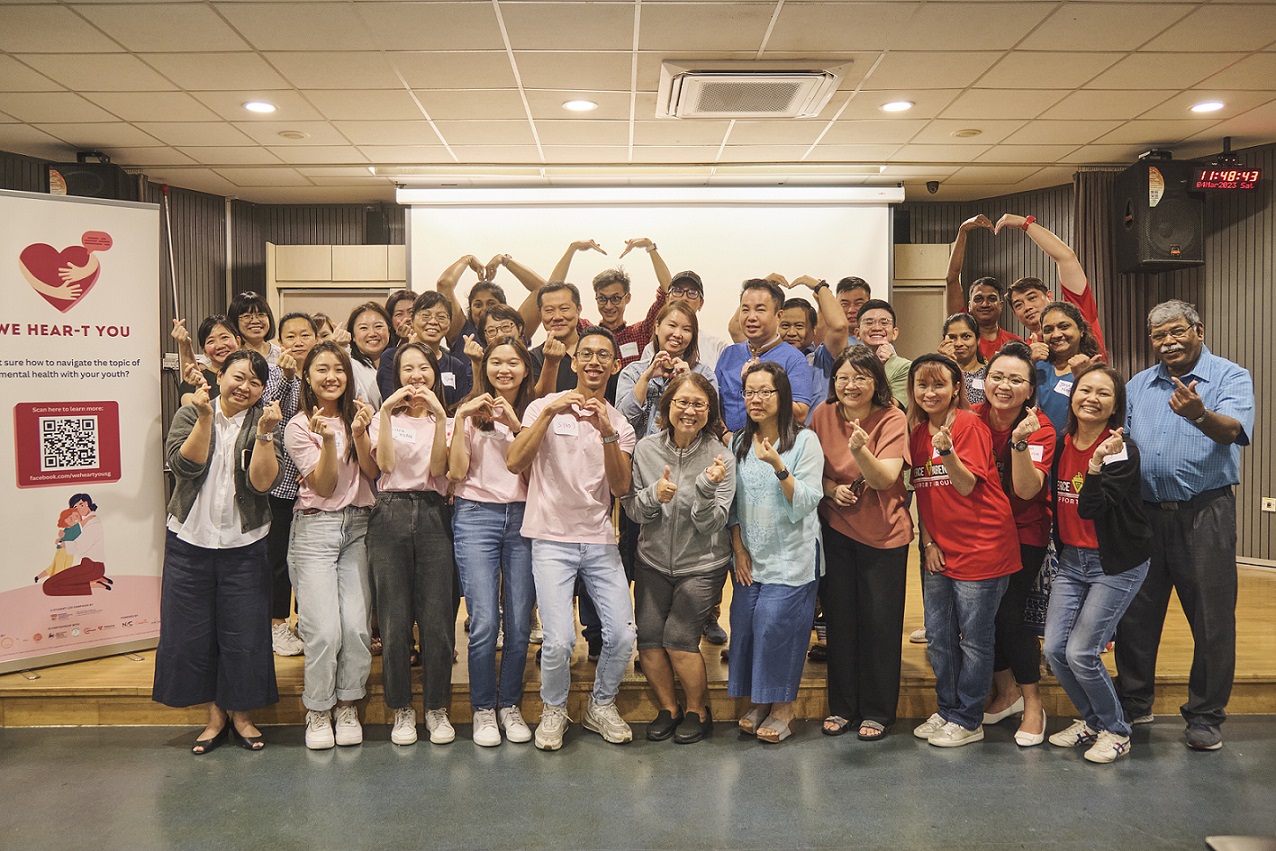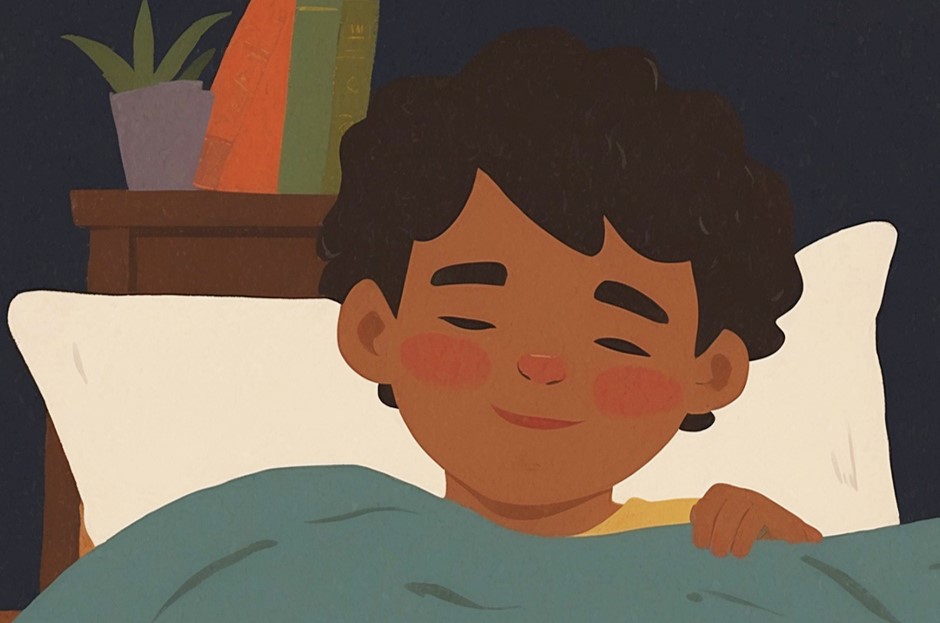Youth POV: I wish I could confide in my parents about my mental health and well-being
09 Mar 2023

As children enter their teenage years, it is common for them to start turning to friends when they face problems. But certain problems – such as mental health and well-being – still require a great deal of support from parents and family. In this piece, undergraduate Ang Jin Hui offers a youth perspective on why teens still want to have conversations with their parents about mental health and well-being.
Jin Hui is a final-year Nanyang Technology University Communications & Information undergraduate. She and her teammates have dedicated their final year project, “We Hear-t You”, to empowering parents to speak with their children about mental health and well-being.
Growing up, there was rarely a topic that I could not discuss with my parents. Friendship problems, teenage crushes, and poor exam results were all fair game for dinner conversations.
Amidst our usual chatter on a regular Wednesday dinner, I told my parents about a friend who had confided in me about her depression and thoughts about suicide.
My sharing was met with surprise, concern, and well-meaning advice. “Huh… how come like that? Tell her don’t be so sad, must be more optimistic. She shouldn’t think this way. Aiyo… her parents are going to be very sad.”
But at the end of that conversation, I could not help but feel that my parents, well-meaning as they were, inadvertently came across as dismissing my friend’s cry for help. Here were topics that seemed to be no-go areas.
Teens still rely on parents and family
Even though teens appear self-reliant, and seem to listen more to their friends, the parents’ role is so important, as I have seen myself.
In my time at university, I have had a fair share of friends, who struggled with their mental well-being. From the side lines, I witnessed the impact that their parents had on them, both for the better and for the worse.
Some friends had supportive parents who prioritised conversations and accompanied them to counselling sessions. These friends spent more quality time with their families, and it helped them feel more secure.
On the other hand, there were also friends with parents who were less involved. And unfortunately, it got harder for either party to start conversations the longer they put it off.
As teens who were still figuring out our place in the world, our insecurities meant that even the most trivial things mattered to us. We were all struggling to become “young adults” – and who better to look to for validation than our parents?
Take failed tests, for example. A simple reassurance of “your best is enough” from my parents kept me going through most bad days in school.
It is unfortunate, however, that similar conversations to check in on our mental wellbeing do not happen often enough.
While working on our final-year project, my teammates and I spoke to Ms Christabelle Shalini Ilankovan, a senior clinical executive at Silver Ribbon Singapore. This is a social service agency that aims to combat mental health stigma and encourage early treatment.
“Parents’ involvement is extremely important,” says Ms Christabelle. “I’ve seen many cases where the involvement of parents has significantly improved and impacted a child’s well-being.”
Why are such conversations so tough?
If you find it hard having conversations with your teen on mental health, you are not alone. And in most cases, these feelings are mutual – your child finds it hard too.
We spoke with Ms Bettina Yeap, the principal counsellor at Care Corner Singapore, to find out why teens hesitate to confide in their parents. She says that some do not want to worry their parents, while others feel that their parents will not be able to understand or relate to their sharing.
In other cases, parents may avoid addressing symptoms of mental health issues displayed by their child. In a focus group study that we conducted with various parents, most shared that their lack of involvement stemmed from not knowing how to communicate their concern. They were afraid that saying the wrong things could bring conflict and make things worse.
Sometimes, their effort at communication would fail, leaving them disappointed. After trying two or three times, they would leave it to the teachers and schools instead as they would “know better”.
To help teens feel safe enough to open up and be vulnerable, Silver Ribbon Singapore’s Ms Christabelle says that parents can start by talking about themselves. “When they see that their parents are comfortable sharing about their own struggles, they may slowly open up and trust them with theirs,” she says.
She adds that how parents react to their teens’ sharing is equally important. Comments such as “don’t think so much” may stem from a place of concern, but can come across as playing down the situation, often causing them to feel dismissed. This can be especially hurtful, considering the courage it took to raise their concerns in the first place.
The result? Teens do not feel heard and end up feeling lonely. This often causes communication to break down.

My team organised a workshop, “Hand in Hand”, for parent participants, in collaboration with Peirce Secondary School’s Parent Support Group and TOUCH Community Services. (Photo by: Macarius Chia)
Building a community of parents
For parents who find it hard navigating this topic, We Hear-t You – the final year project that my teammates and I are running – is dedicated to helping parents cultivate the confidence to initiate mental health conversations.
Bite-sized content on our social media platforms gives parents insights into what youths think, with ideas on how to kickstart conversations with their teens. One way is by stating observations. For instance, starting off with “I noticed that something seems to be troubling you recently. What happened?”, signals that you are keen to hear more about their lives.
We have conducted for parents to receive more personalised advice, while building a community of parents who share their concerns and experiences about connecting with their teens.
All these are done with the guidance of experts from organisations like Silver Ribbon Singapore and Care Corner Singapore, to encourage parents to take the first step.
We hope that our campaign can be a step towards providing stronger support for parents, and empower them to speak with their children about mental health and well-being.
If you are a parent who would like to join Jin Hui and her team in building a culture where children feel safe confiding in their parents, do learn more at We Hear-t You.
More stories on youth mental well-being:
Youth to youth: How are you feeling?
“Don’t be shy about seeking help for your mental health”
“Our awareness can do so much for our children.”
In Their Skin
From “I’m okay” to “It’s okay”
We are on Telegram! Subscribe to our channel: https://t.me/schoolbag_edu_sg





.jpg)